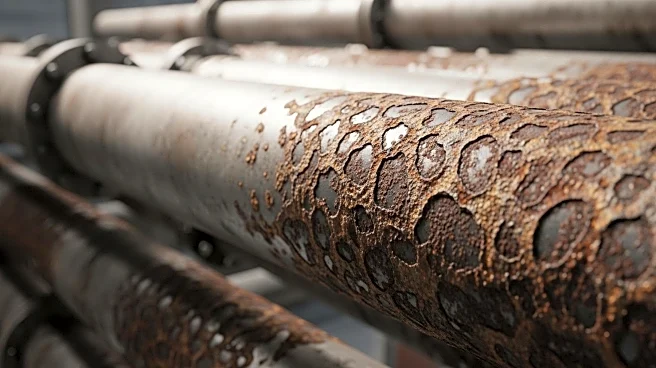What is the story about?
What's Happening?
A study has identified corrosion in 316L stainless steel heat exchanger tubes used in a sugar factory's carbon dioxide process. The corrosion, attributed to dew point corrosion, was found on the external surface of the tubes, caused by acidic vapors condensing on the surface. The presence of halides and sulfuric acid in the flue gas contributed to the rapid deterioration of the tubes.
Why It's Important?
Understanding the mechanisms of dew point corrosion is crucial for industries relying on heat exchangers, as it can lead to significant maintenance costs and operational disruptions. The findings highlight the need for improved material selection and protective measures to prevent corrosion, ensuring the longevity and efficiency of industrial equipment.
Beyond the Headlines
The study suggests that alternative materials, such as super-austenitic stainless steels or nickel-based alloys, may offer better resistance to acidic environments. This could lead to advancements in material science and engineering, promoting the development of more durable industrial components.
















